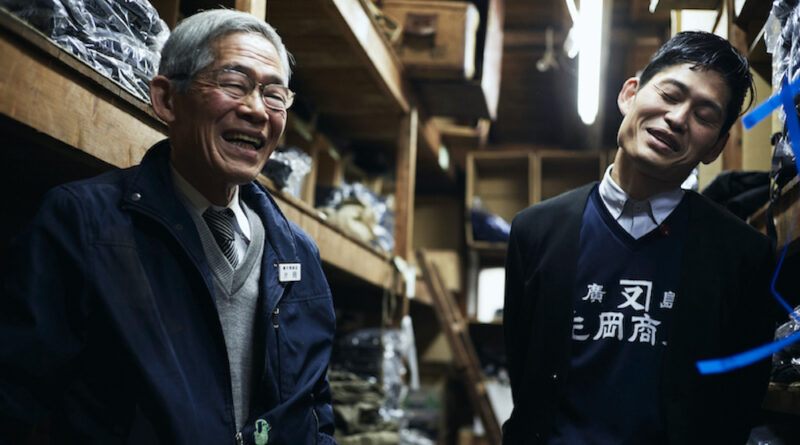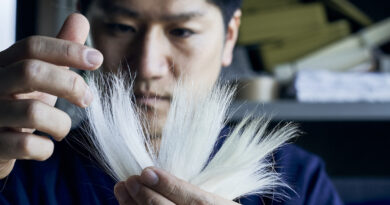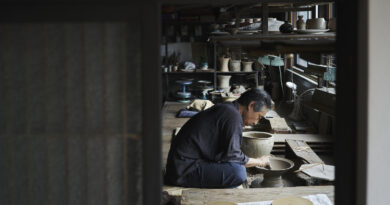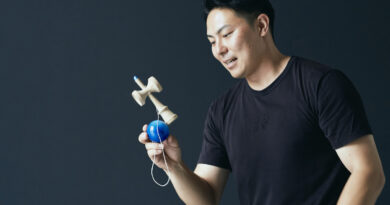Kataoka Shoten: A 127-year journey from wicker baskets to drones
”What are you doing now?” an exasperated Susumu Kataoka calls up at his 75-year-old father, perched precariously on a ladder. “Stop fussing,” replies his dad, as he stumbles, eliciting a concerned intake of breath from all assembled.
We are in the storeroom of Kataoka Shoten in Tokachi, just west of Hiroshima Peace Memorial Park. Founded 127 years ago, the company has specialized in supplying school bags for the past half century. Susumu took over from his father in 2021, becoming the 5th generation head of the company. Watching them trade off-hand comments, with the kind of bite reserved for family, one senses a tension that goes beyond traditional father-son dynamics. Susumu and his father were brought up in two worlds that couldn’t have been more different.
Born of Hiroshima’s military history, rebuilt after the A-bomb
The reason that Susumu’s father is at the top of that ladder is that he wants to show us a wicker yanagi-gyori basket made from tightly woven willow. Lightweight, durable, with the water and insect resistant properties of willow, yanagi-gyori have been in use for around 1200 years. They were the method of choice to transport the belongings of samurai daimyo on their compulsory journeys between their domains and the capital of Edo and were used by Japan’s soldiers during until the end of World War II.
It was to supply the military with trunks like these that the founder of Kataoka Shoten made the move from Toyooka in Hyogo Prefecture (which had a long tradition of crafting yanagi-gyori during the region’s long winters and continues to be leading baggage production area today) to Hiroshima in 1897. Hiroshima’s recently opened port had been the departure point for thousands of soldiers during the First Sino-Japanese War (1895-6) and it would continue to play an important logistical role in the subsequent Russo-Japanese War and Japan’s period of imperial expansion until the end of WWII.
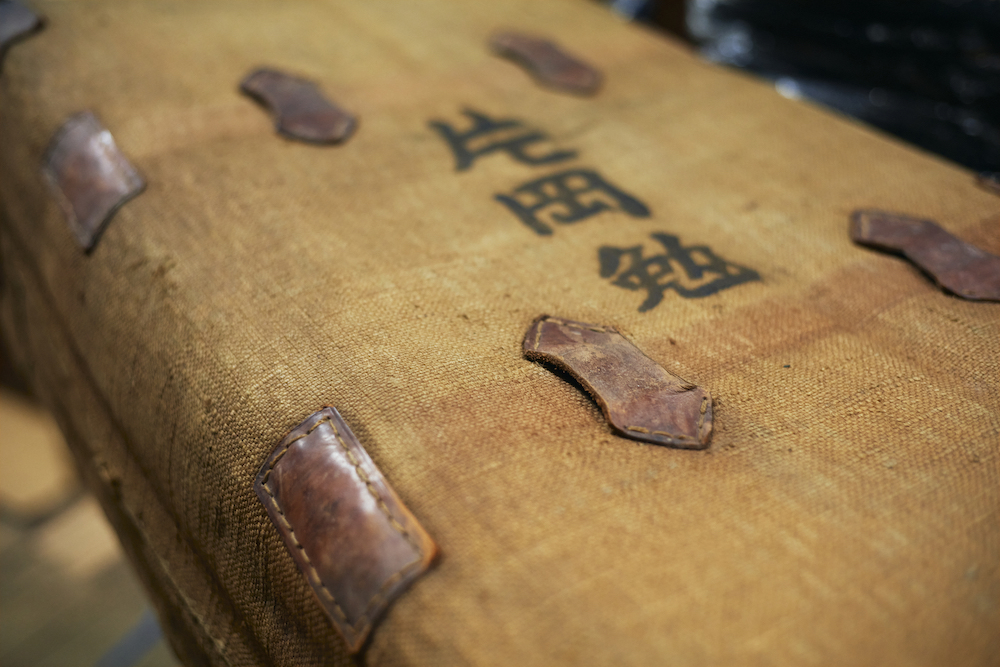
The trunk in the storeroom belonged to Susumu’s grandfather. It is in remarkably good condition, with “Kataoka” painted on the beautifully crafted wickerwork in large kanji characters. This relic of the past only remains as Susumu’s grandfather was stationed in Fukuoka at the time of the A-bombing. At approximately 500m from the bomb’s hypocenter, the Kataoka’s store was completely obliterated in the blast, also claiming the lives of Susumu’s great uncle and great grandmother, but, in a stroke of fate, his grandmother evacuated to the mountains the day before the attack.
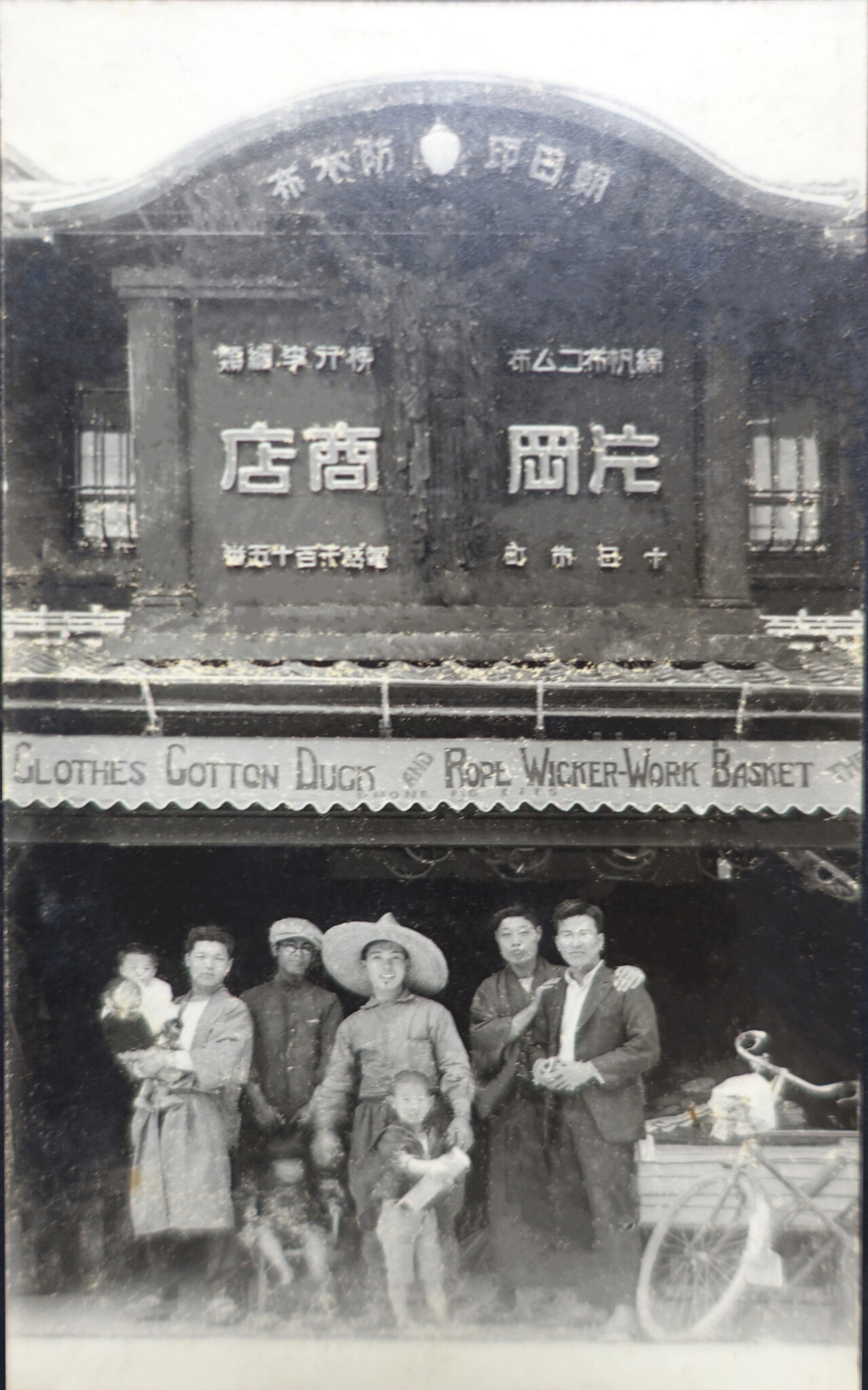
Two years later, surviving members of the family reopened the business in its current location selling luggage, bags, raincoats and other travel goods. By the 1980s, they were focusing on synthetic leather school bags, and shifted into the development and manufacture of bags made with lightweight, waterproof materials. Today, Kataoka Shoten supplies around a third of the school bags used by Hiroshima City’s junior high schools.
The responsibility of a 127-year legacy
Susumu Kataoka confesses that although, as the eldest child, he was certainly aware that he would probably be expected to take over the family business at some point, it wasn’t something he was particularly interested in growing up. After pursuing a degree in agriculture, he spent some time as a salaryman, including a stint at a forklift truck company. After becoming dissatisfied with working for other people, he used skills honed blogging about interests (from stock analysis under-the-radar companies to growing goya bitter gourds on his Tokyo balcony with hydroponics) to go out on his own, selling his content marketing skills.
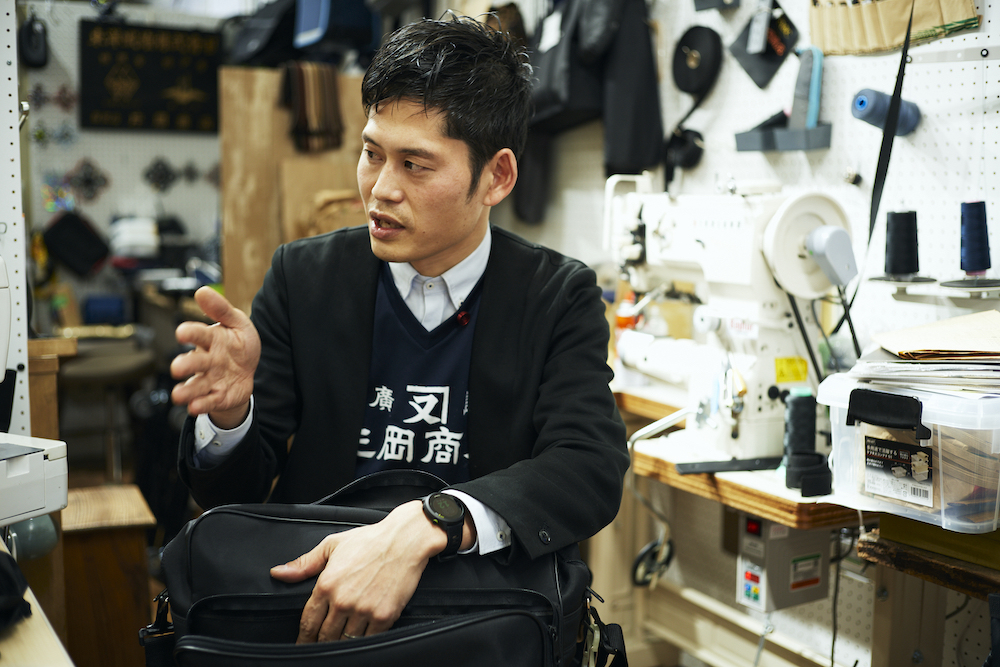
In 2020, however, he received a call from his father. Unsure about the future of the business in the face of Japan’s aging society, he was considering calling it a day unless Susumu was prepared to take over. Susumu may not have had a particularly strong passion for school bags, but he was keenly aware of the value of a 127-year-long history. And also a sense of responsibility. He jokes, “If I was the one to bring the company to an end, I feared that my ancestors would haunt me for letting them all down.”
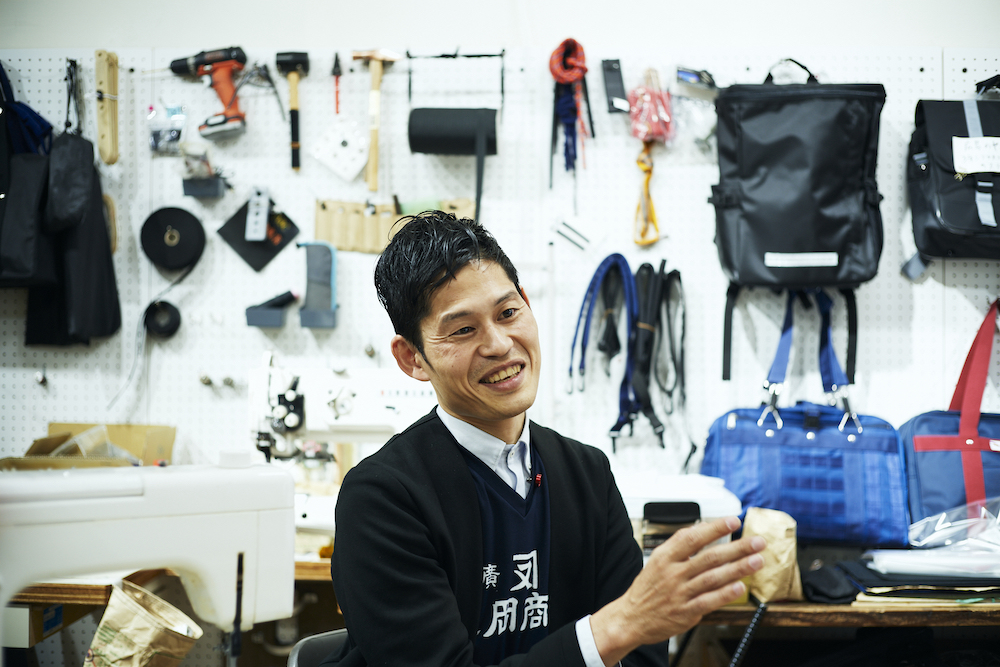
After some careful thought, Susumu decided that he would take on the business and work as hard as he could to find a way for it to not only survive, but thrive in the face of Japan’s declining birth rate that will eventually decimate Kataoka Shoten’s traditional customer base and competition from cheap overseas products.
In search of a new direction
It’s clear that Susumu Kataoka is a man who loves a challenge, but he confesses that things got off to a rough start. He shares a mind map that he made sitting in a coffee shop soon after taking over. It perfectly represents the state of both his mind and the business, a complex and confused web of challenges and doubts.
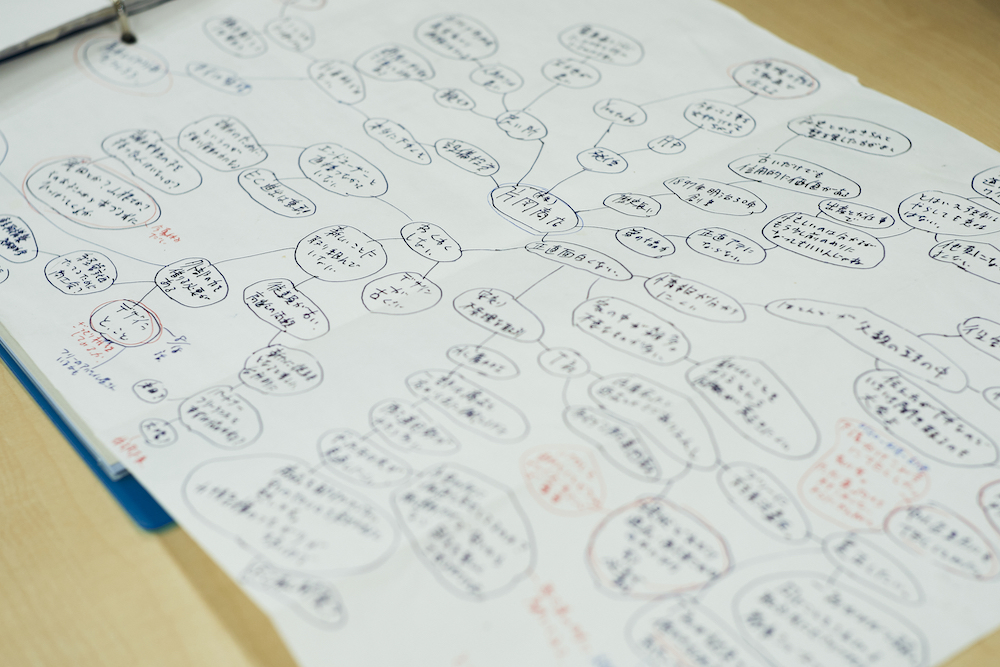
It served, however, to clarify the current situation and find a starting point. The first step, he decided, was to get organized. Their shop-come workshop, crammed with all kinds of “stuff” accumulated over 70 years, resembled a storage space more than a retail business.
They unearthed many antique pieces and valuable records of Kataoka’s long history, but there was a lot of junk to be gotten rid of. However, one man’s junk is another man’s treasure, and the clean out proved to be a source of friction between him and his father.
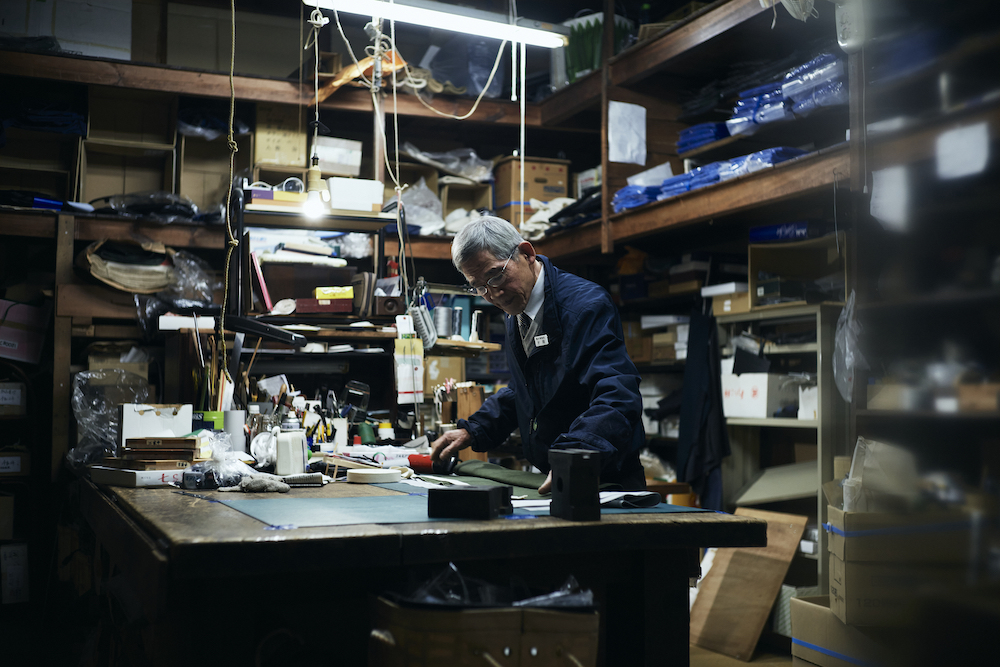
When sharing some of these treasures, Susumu’s father comments more than once that they would all have been thrown away if his son had his way and complains that he can’t find anything now that everything has been tidied up.
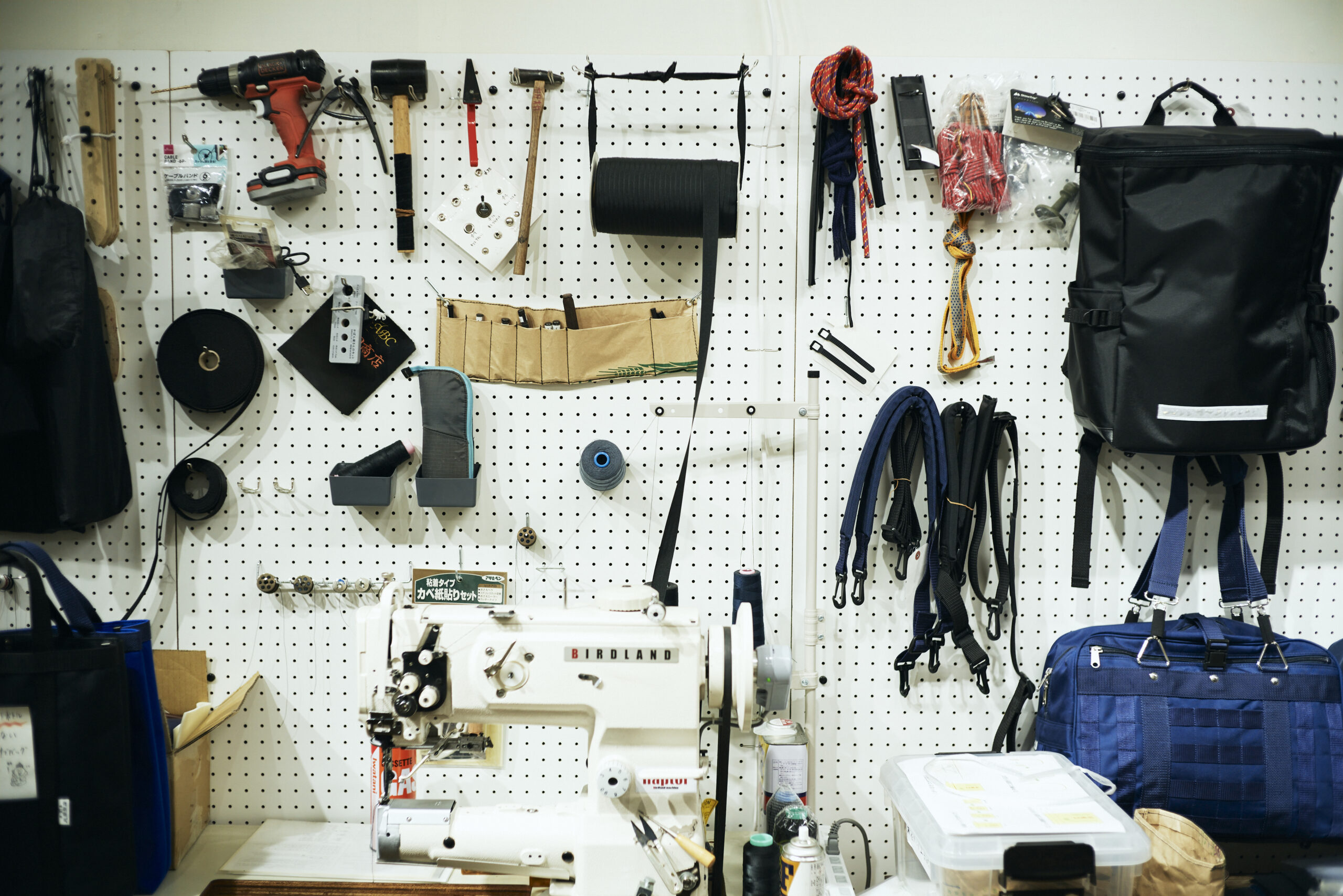
The difference between Susumu’s workspace, tools all hung in their place on the wall, and his father’s somewhat chaotic workshop, is striking, but they both obviously enjoy the hands-on aspect of their work, tinkering with new ideas.
Susumu’s tinkering goes beyond bags however. One of his seemingly countless hobbies is building his own drones, specifically, First Person View drones.
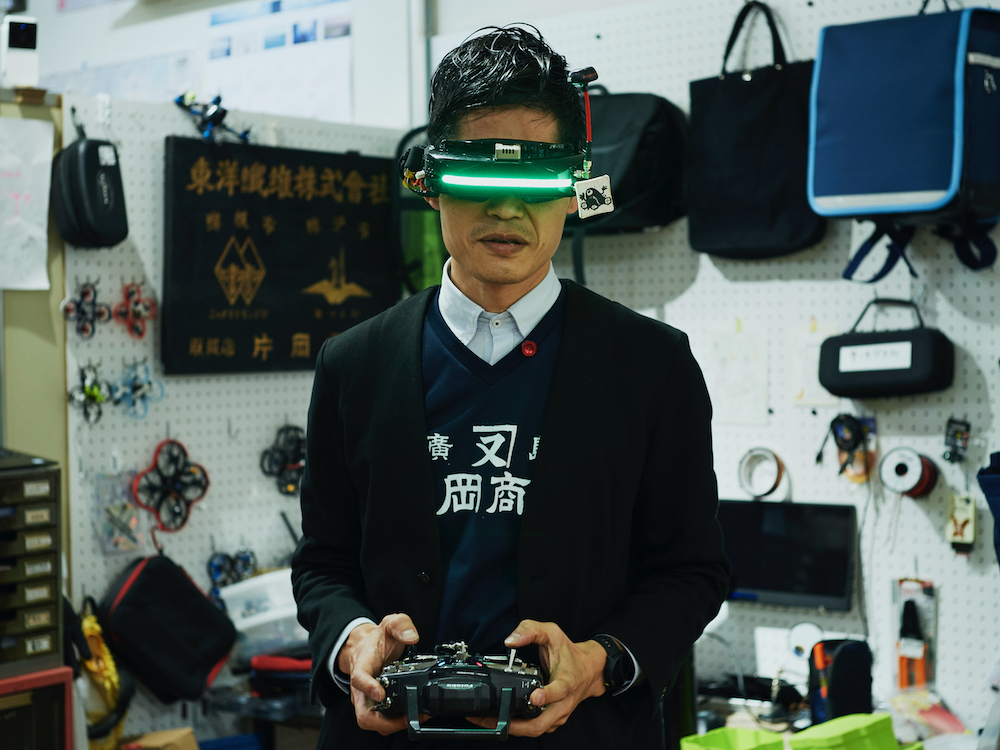
He doesn’t need much prompting to give us a demonstration. He dons a headset that makes him look like Robocop and launches a little drone that circles the small shop and crashes into the wall behind his mother who has been working at her desk as we talk. “He’s always doing this,” she says with mock disdain, but is quick to follow up, with obvious pride, that his playthings have connected to real business opportunities as well as being a popular source of online content (a POV factory tour has done rather well on Twitter).
Diversification based on Kataoka Shoten’s strengths
Susumu Kataoka’s natural curiosity, love for experimentation, ability to take a lateral view – and sense of fun –– are all key to his approach to safeguarding Kataoka Shoten’s next century.
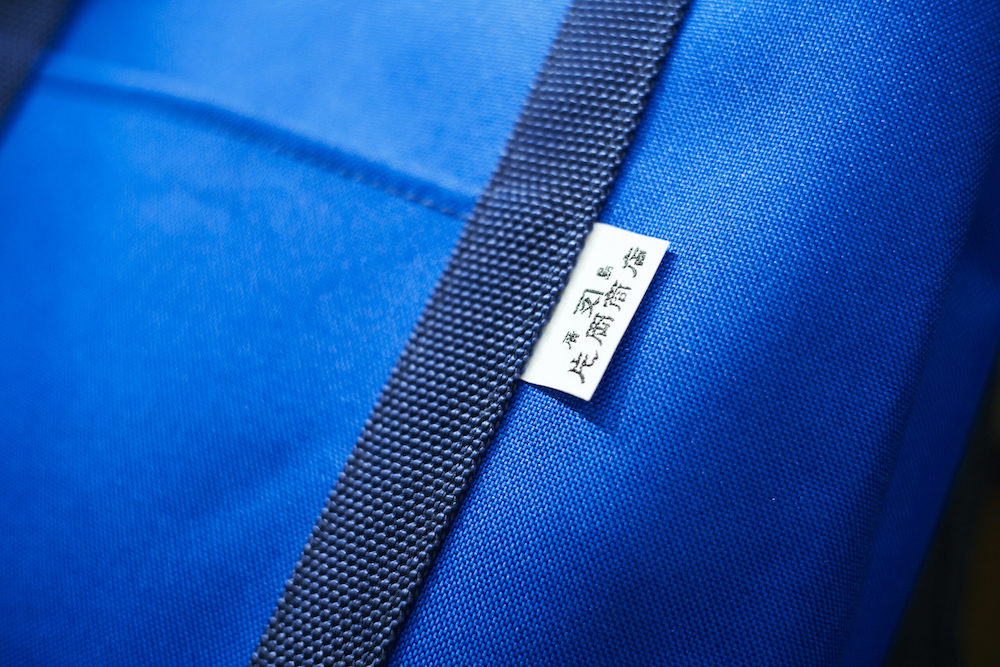
He quickly drilled down on one of the businesses strengths, the durability of its products. School bags may not be the coolest of accessories, but they have to be exceptionally hard wearing. Leaning into this, the shop now proudly displays a sign proclaiming that their bags are “Military grade products that can handle 3 years of abuse by delinquent junior high schoolers.”
As Japan’s low birthrate crisis deepens, he is looking beyond schools to build the Kataoka Shoten brand. Niche targets include airsoft players, adding military style design elements to holdalls, and he has been testing out a satchel that might appeal to well-healed Brompton bike owners.
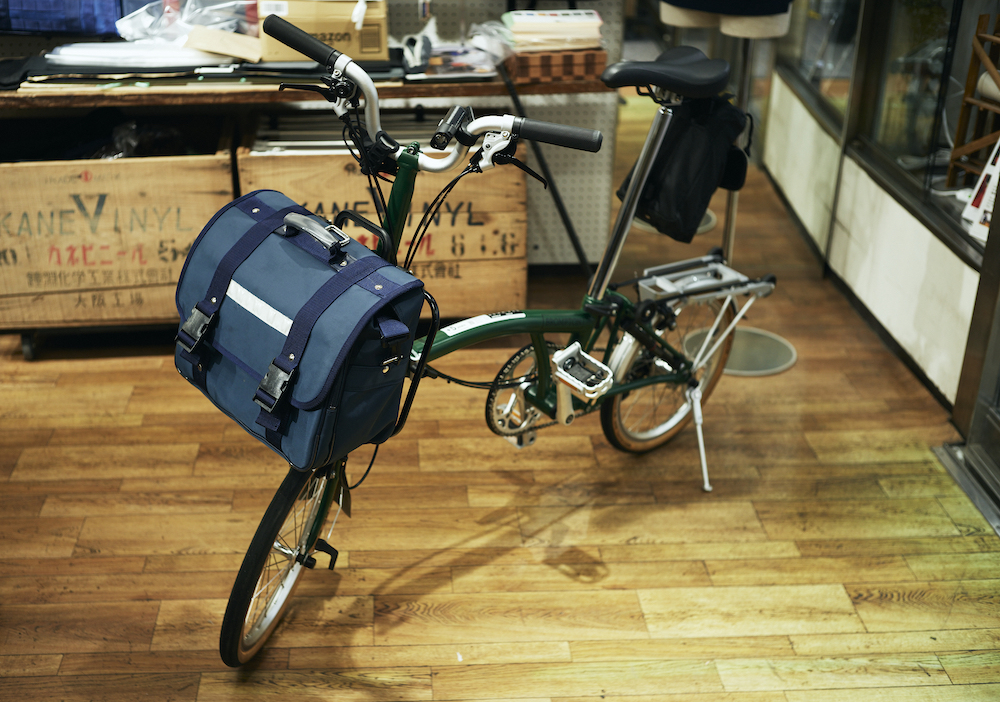
Waterproof flat bags branded as “Sayonara (Bye Bye) Paper Bags,” that are the perfect size for holding A4 documents and a laptop, are aimed at Japanese business people who still spend a lot of time hauling documents to client meetings.
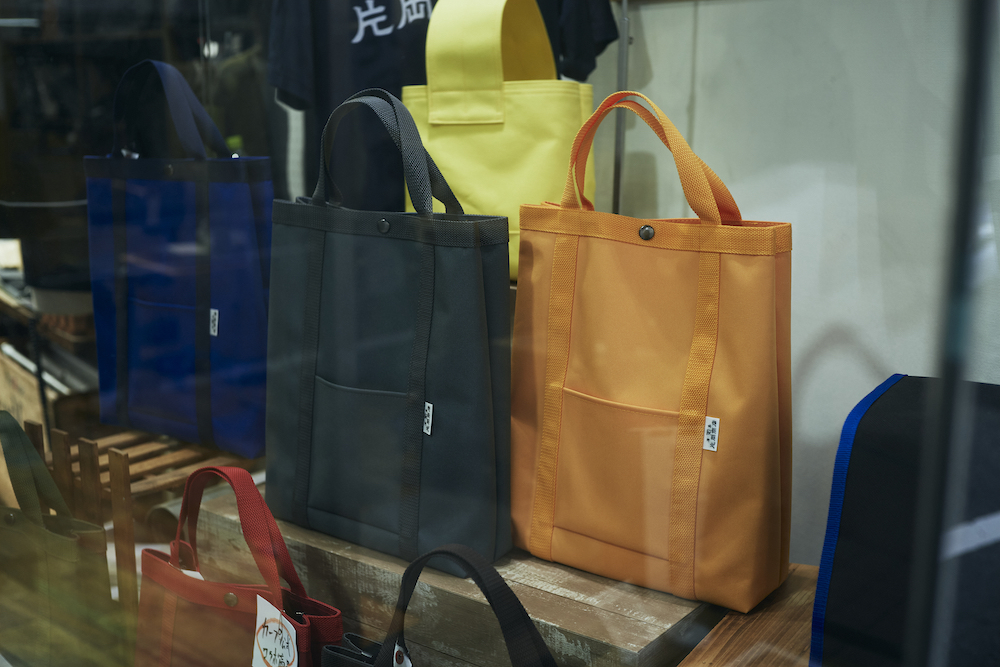
He has even launched a line of T-shirts that feature the original company logo which was uncovered during their clean out (one of the many treasure’s that father and son did agree upon).
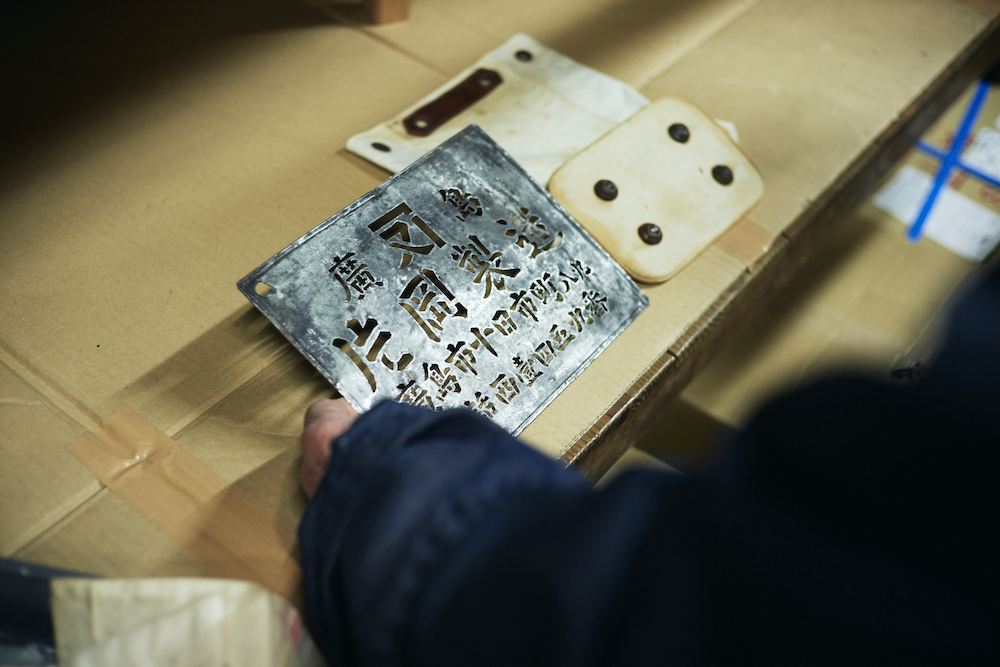 |
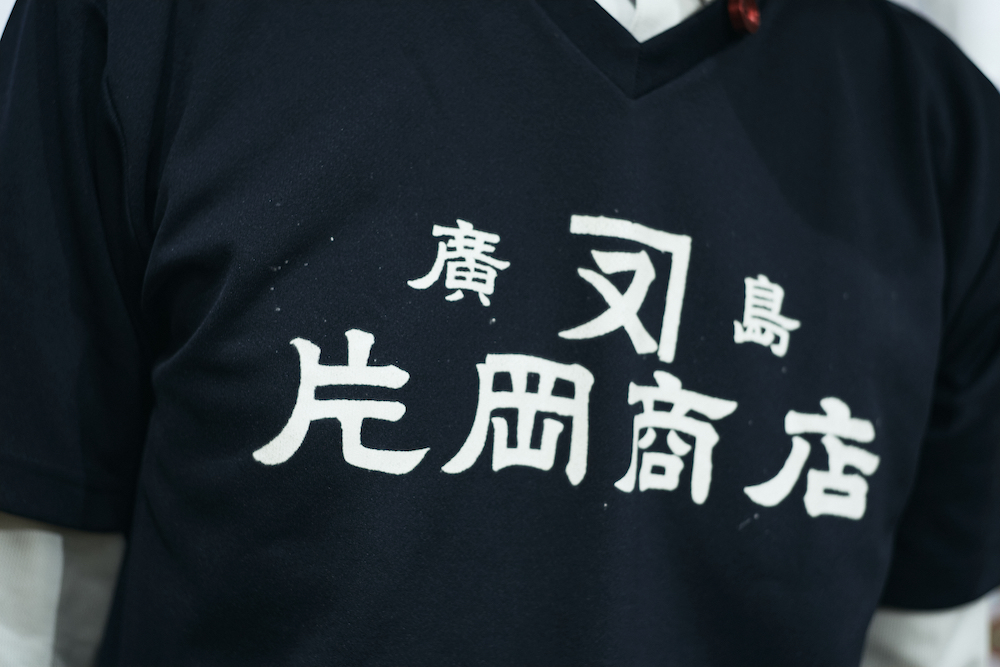 |
Respect and gratitude
It is still early days, but Susumu Katoka is getting into his stride. Although his time is split between the business in Hiroshima and his family in Tokyo, he still finds time to step out of the confines of Kataoka Shoten. He has been leading workshops which upcycle paper rice sacks into stylish tote bags. Made to hold 30kg at a time, they are exceptionally sturdy, demonstrated by a little bag packed with heavy rocks, collected on a recent trip to Kintai Bridge to feed another of his hobbies, skimming rocks on the Ota River.
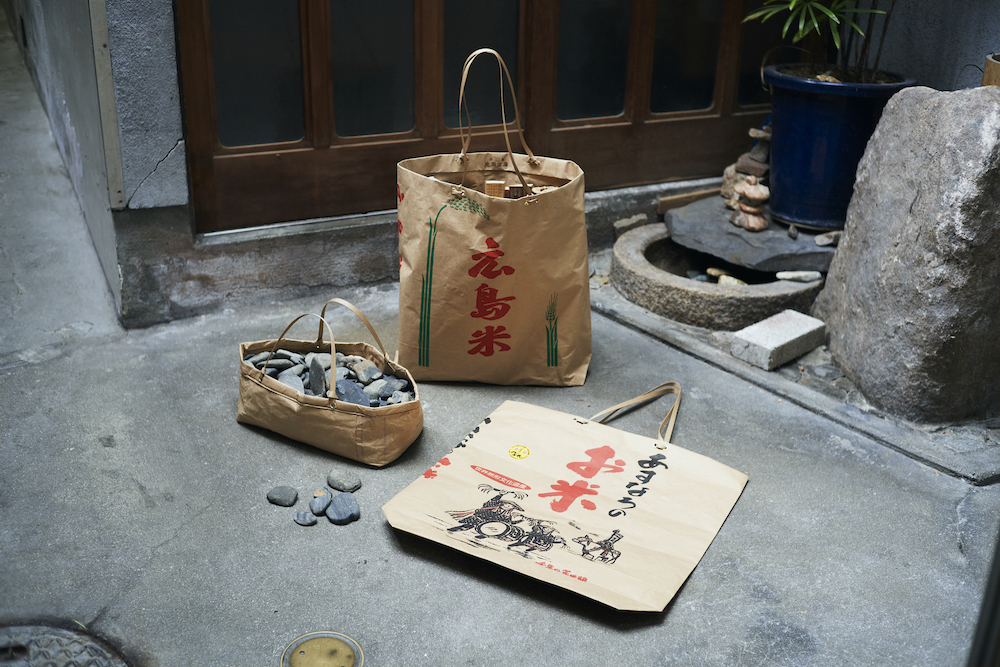
As we are wrapping up our time at Kataoka Shoten, Susumu’s father emerges from his workshop. The banter resumes, like a ping pong match with the ball going back and forth over the head of Susumu’s mother. One can easily imagine their predecessors performing the same verbal dance through the decades.
https://drive.google.com/file/d/1fkcHGwif4uuhcIgKqgXgx2jdXdDZOQN4/view?usp=sharing
Between the barbs, however, you can feel the respect that Sumumu has for his father, who has dedicated his life to making sure the kids of Hiroshima get the stuff to and from school safely, and the gratitude his father feels for his son taking over the business.
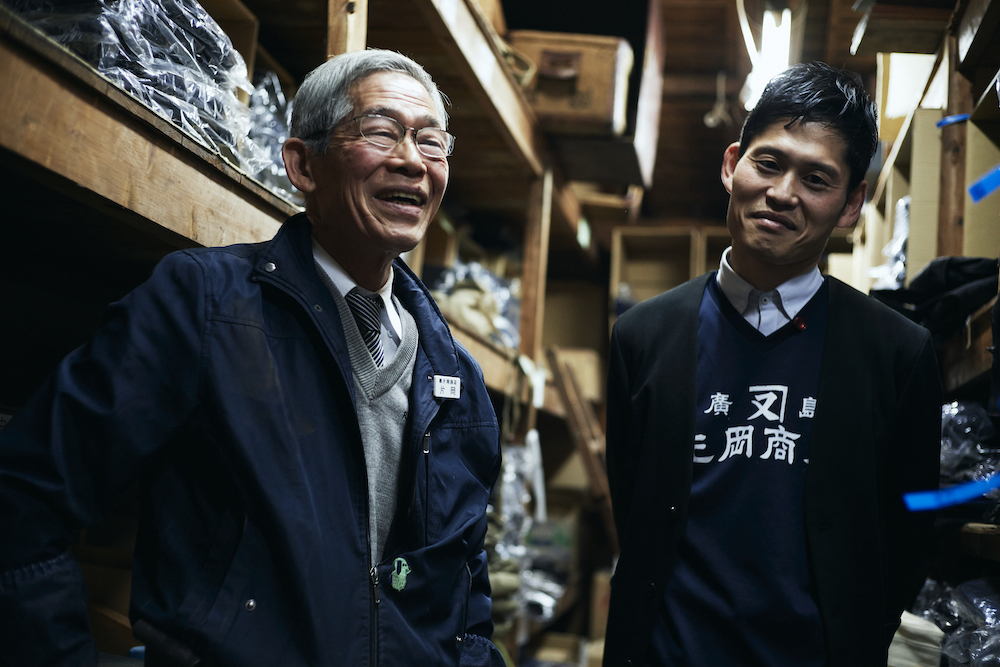
Long may the banter continue.
Kataoka Shoten [片岡商店]


